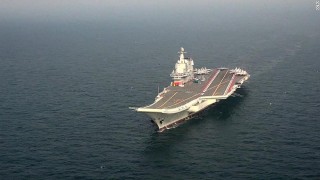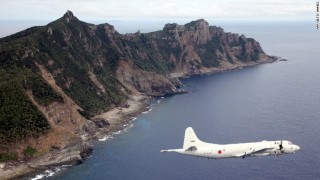Loading
Search
▼ Japan Says Chinese Ships Spend Record Time Violating Its Territorial Waters
- Category:Event
Chinese coast guard ships have twice intruded into Japan's territorial waters in the past four days, forcing Japanese coast guard vessels to block the Chinese ships from approaching Japanese fishing boats on at least one occasion, authorities in Tokyo said Monday.
The Chinese vessels came within 2.5 miles (4 kilometers) off the Japanese-controlled Senkaku Islands, known in China as the Diaoyu Islands, well past the internationally recognized 12-mile (19.3 kilometer) limit that defines a country's territorial waters, the Japanese Coast Guard said.
Japanese chief cabinet Secretary Yoshihide Suga said Tokyo has lodged repeated diplomatic protests with Beijing over the presence of the Chinese ships.
Both Tokyo and Beijing claim the uninhabited islands as their own, but Japan has administered them since 1972.
Tensions over the rocky chain, 1,200 miles (1,900 kilometers) southwest of Tokyo, have simmered for years, and with claims over them dating back hundreds of years, neither Japan nor China is likely to back down over territory considered a national birthright in both capitals.
But tensions heated up last month, with the approval by the Okinawa city council of a bill changing the administrative status of the island chain. The vote, which was reported to have asserted that the island's are "part of Japanese territory," generated a strong protest from Beijing.
On Monday, Chinese Foreign Ministry spokeman Zhao Lijian, maintained that it was China's inherent right to patrol waters around the islands and Beijing urged Japan to stop infringing upon the country's sovereignty.
Chinese government ships have now spent 84 days in waters around the islands, Japan's coast guard said Monday, but the actual intrusion into Japan's territorial waters ups the ante on the dispute.
Japan's coast guard said the two Chinese intrusions since Thursday -- lasting 30 hours and 40 hours respectively -- are the longest spans Chinese government ships have ever spent inside Japanese waters around the islands. During those forays, the Chinese ships were within Japan's territorial waters, cruising about four to six miles (six to 10 kilometers) off the islands, Japan said.
The close proximity between the two sides places the ships at the risk of collision, which could ratchet up tension even further if a military confrontation is provoked.
Such a scenario has raised alarm within the region, owing to the potential for escalation. Under a mutual defense pact with Tokyo, the United States is obligated to defend the islands as part of Japanese territory.
Emerging Japanese defense ties with India may also be adding to the tensions between Tokyo and Beijing.
Late last month Japanese Maritime Self-Defense Force training ships drilled with Indian naval vessels in the Indian Ocean.
Asked at a news conference last month whether there's any relation between increased Chinese activities in the disputed islands and the India-China military face off in the Himalayas, Japanse Defense Minister Taro Kono said the region must do a better job of assessing Chinese intentions.
"China is trying to change the status quo at the India border, in Hong Kong and in the East China Sea, South China sea. So it is easy to make connections between those issues. Obviously the military is controlled by the Communist Party, so it has to be coming from pretty high up in the Chinese Communist Party," Kono said of the increasing Chinese military activities.
Such a scenario has raised alarm within the region, owing to the potential for escalation. Under a mutual defense pact with Tokyo, the United States is obligated to defend the islands as part of Japanese territory.
Emerging Japanese defense ties with India may also be adding to the tensions between Tokyo and Beijing.
Late last month Japanese Maritime Self-Defense Force training ships drilled with Indian naval vessels in the Indian Ocean.
Asked at a news conference last month whether there's any relation between increased Chinese activities in the disputed islands and the India-China military face off in the Himalayas, Japanse Defense Minister Taro Kono said the region must do a better job of assessing Chinese intentions.
"China is trying to change the status quo at the India border, in Hong Kong and in the East China Sea, South China sea. So it is easy to make connections between those issues. Obviously the military is controlled by the Communist Party, so it has to be coming from pretty high up in the Chinese Communist Party," Kono said of the increasing Chinese military activities.
- July 6, 2020
- Comment (0)
- Trackback(0)



